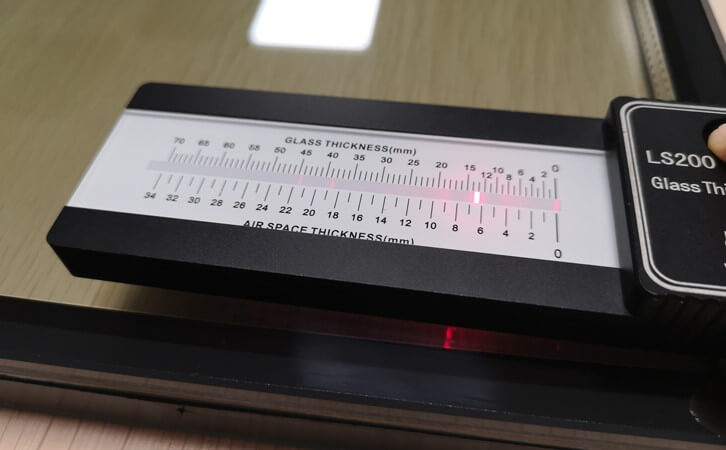The Role of Insulated Glass Thickness Gauge
The thickness of the insulating glass directly affects the sound insulation effect and heat insulation effect of the building energy-saving glass. The measurement method of the thickness of the insulating glass can use the insulated glass thickness gauge, which can directly measure the thickness of the double glazing and the thickness of the air layer.
The wide application of insulating glass has greatly promoted the development of building energy conservation, and the gradual improvement of building energy-saving standards will also promote the continuous improvement of energy-saving characteristics of insulating glass. Through the detailed data analysis of the original combination of the insulating glass, the type of the interval, and the environment of use, it can be concluded that the important factors affecting the energy-saving characteristics of the insulating glass are the type of the original glass sheet and the thickness of the insulating glass spacer layer.

Therefore, the installation thickness of insulating glass is an important work item, which directly affects the performance effect of building energy-saving glass, and the amount of insulation and sound insulation. The method for measuring the thickness of the insulating glass can be an insulating glass thickness gauge which directly measures the thickness of the glass and the thickness of the intermediate air layer. The most prominent feature is that only one-sided measurement is required, and it can also be tested for the insulating glass that has been installed.
The commonly used hollow glass spacer layer has a thickness of 6 mm, 9 mm, 12 mm, and the like. The measurement of the thickness of the insulating glass can be measured using an insulating glass thickness gauge. For more information, please refer to the "LS200 Glass Thickness Gauge".